Charles E W Bean, Diaries, AWM38 3DRL 606/98/1 - February 1918 - Part 2
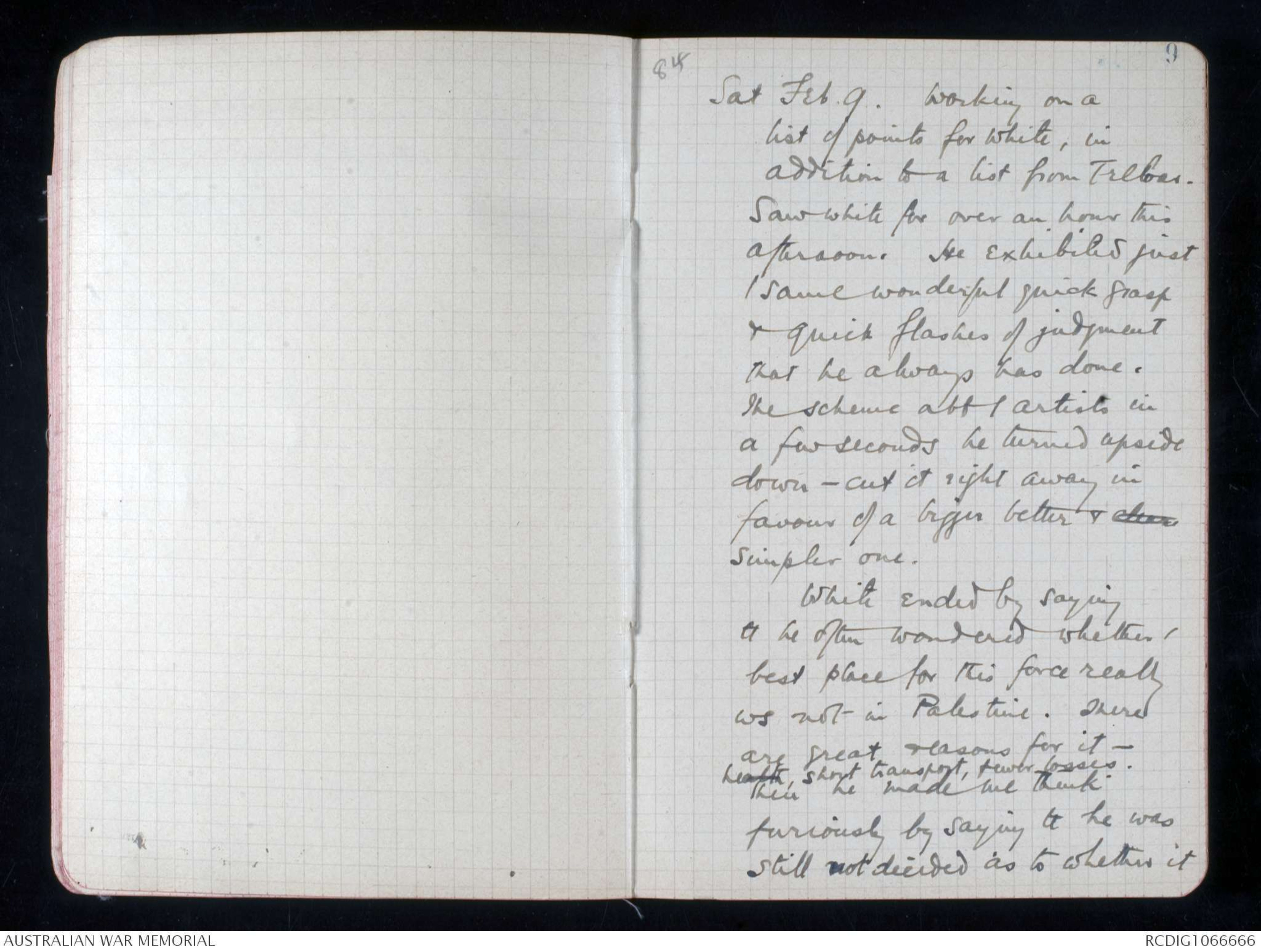
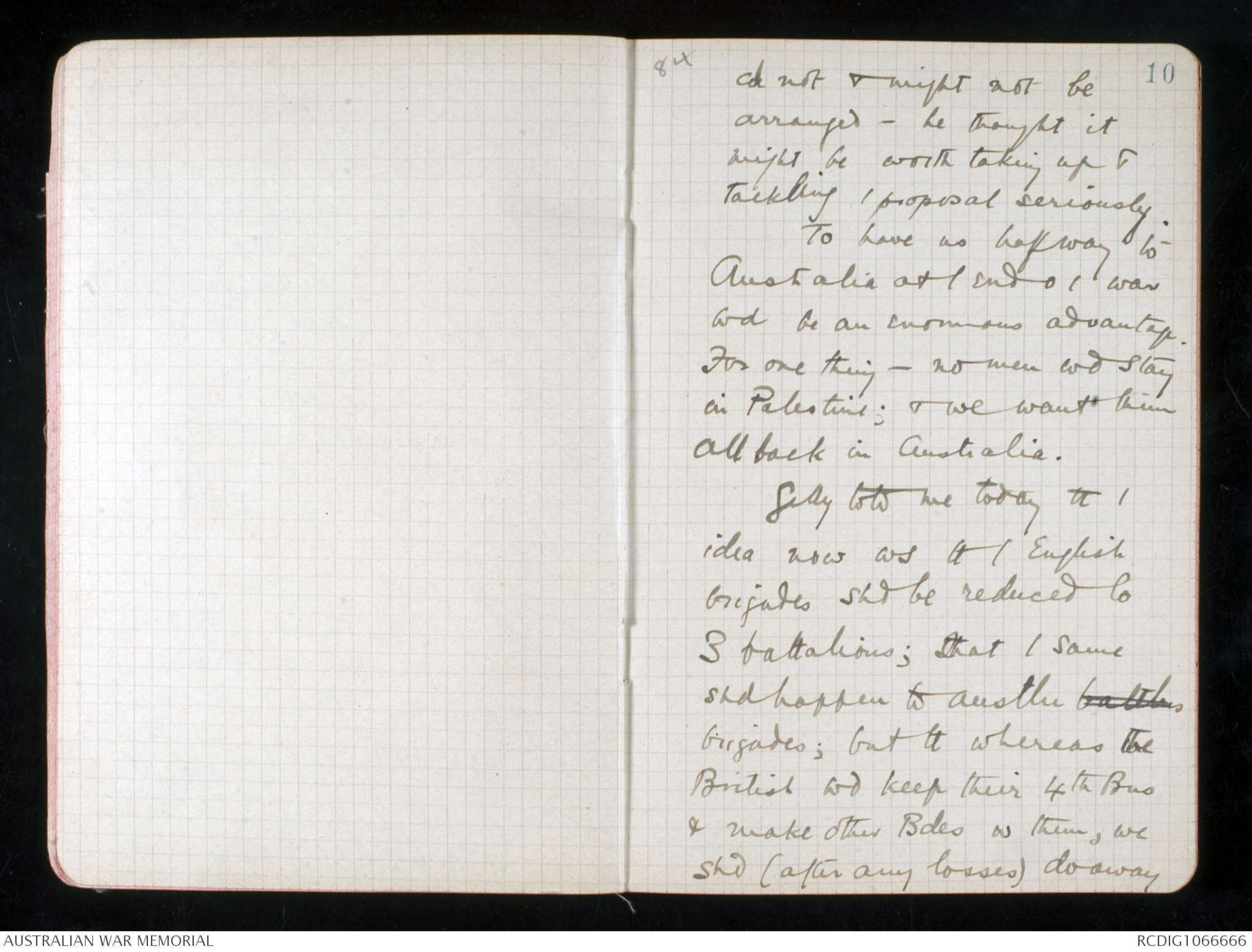
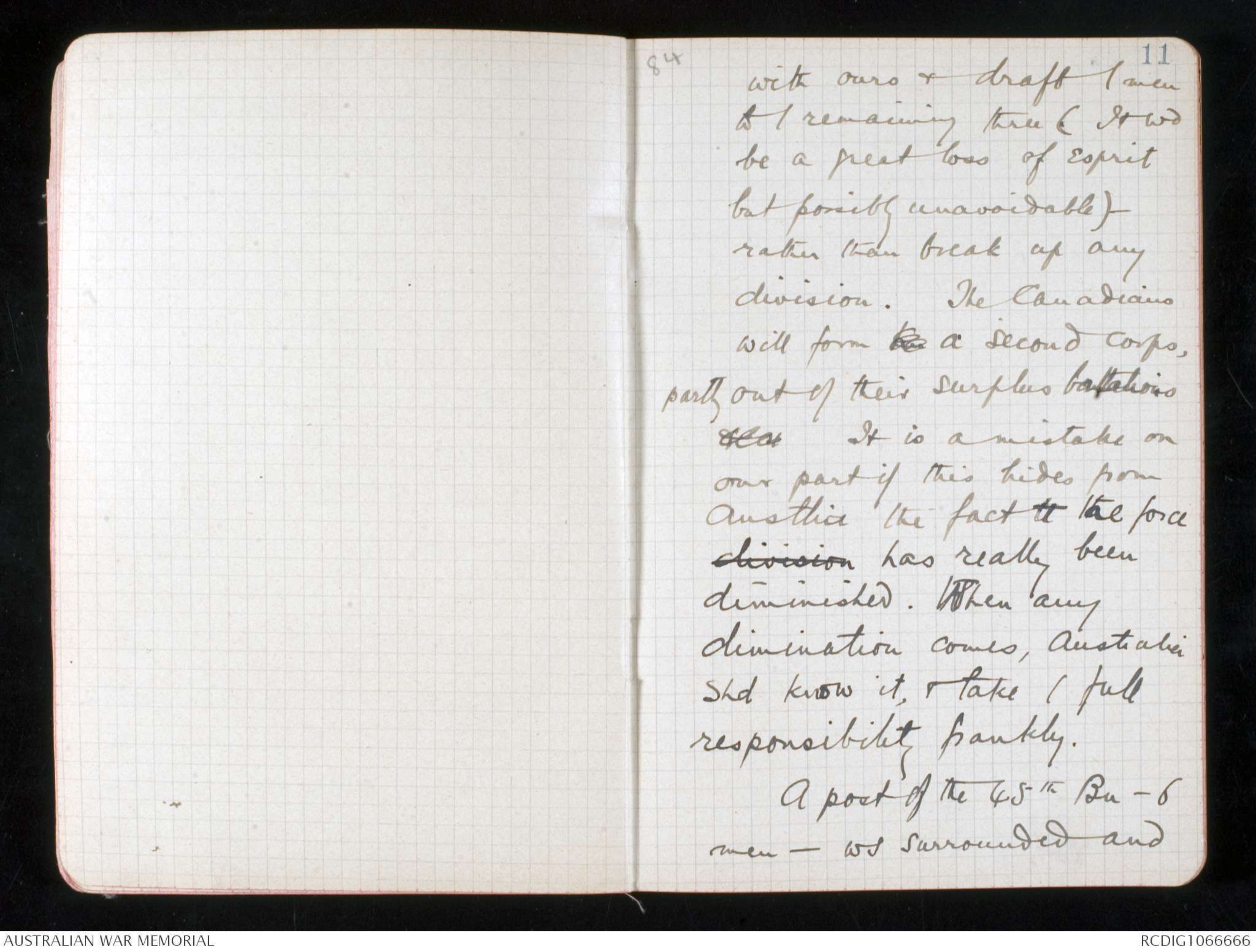
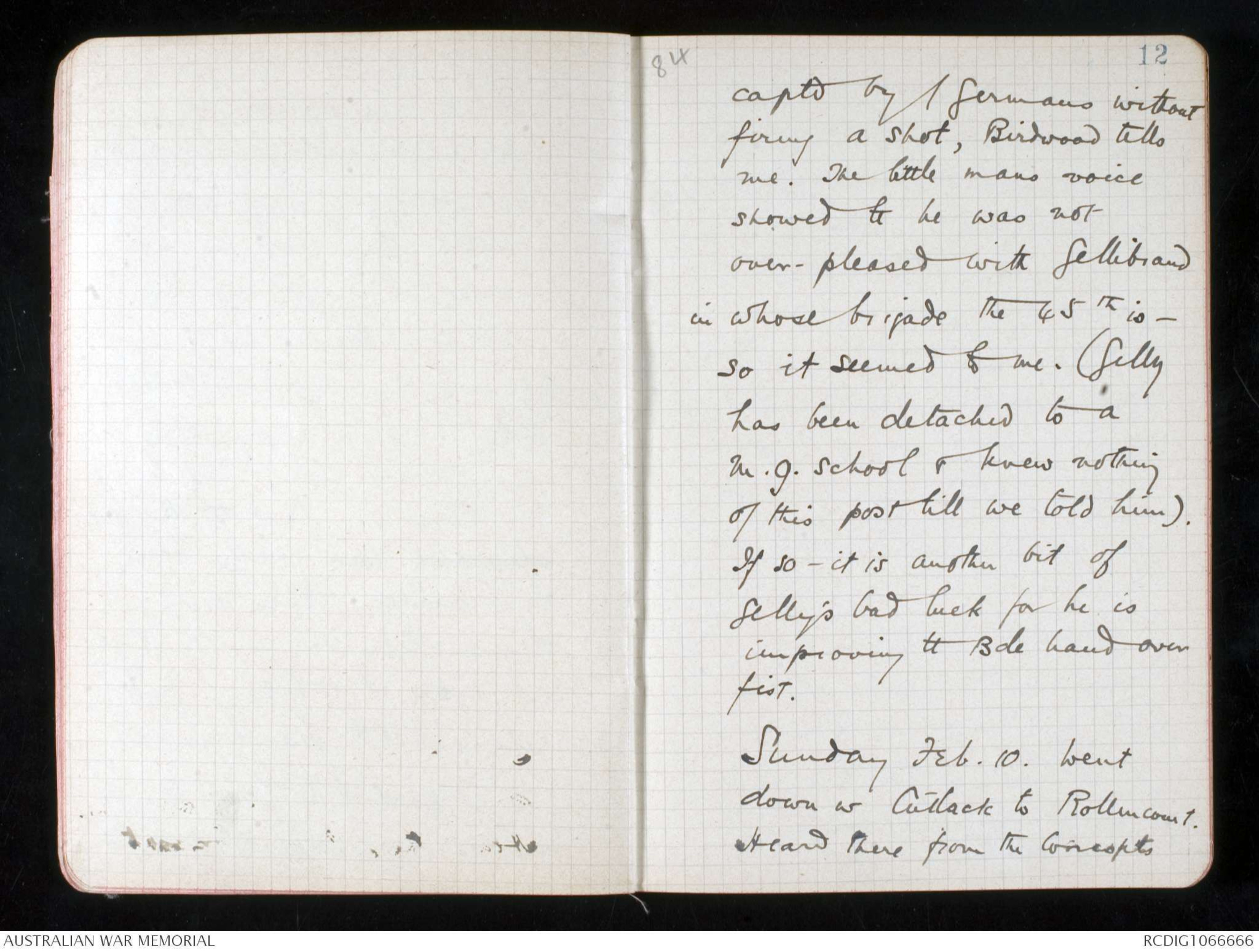
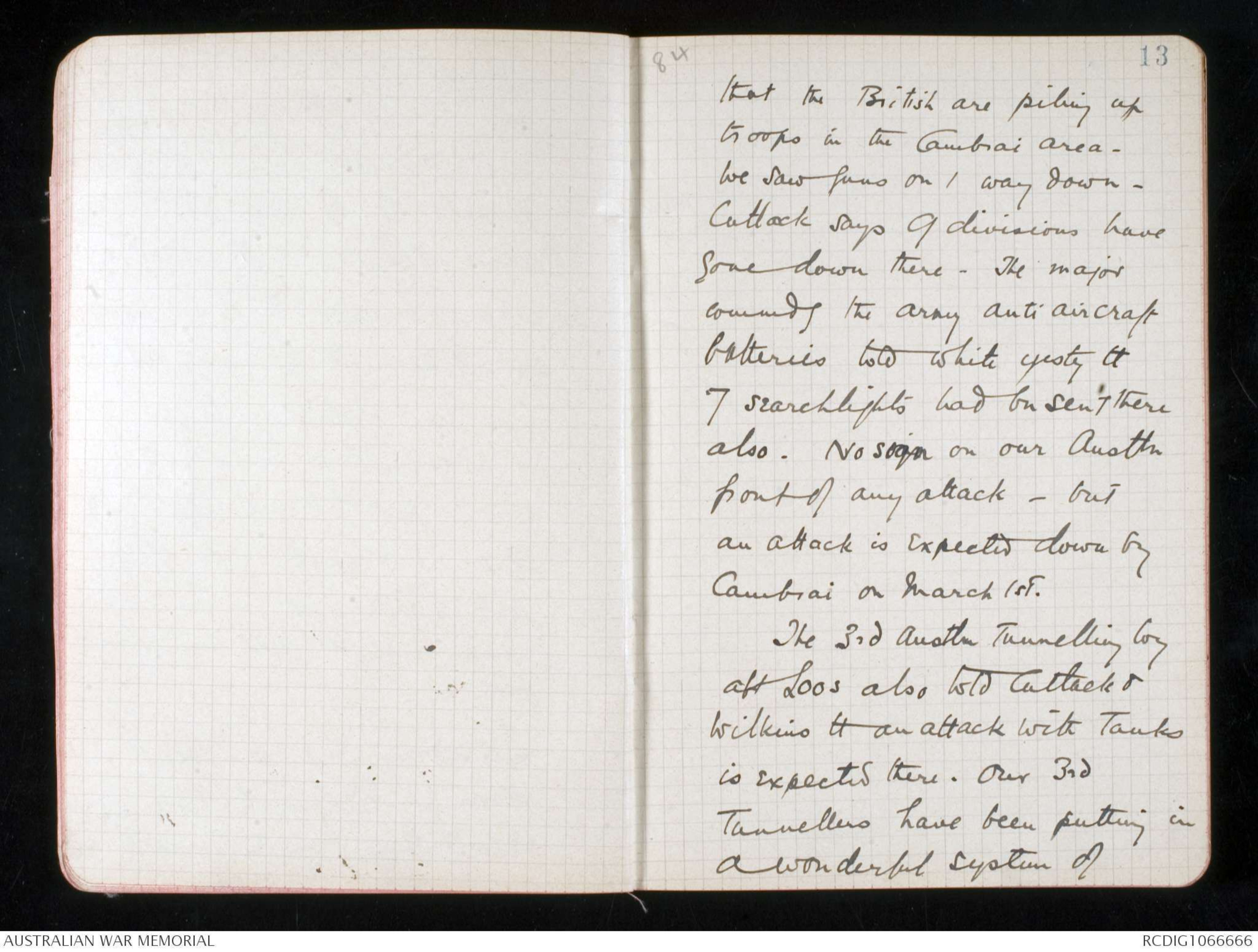
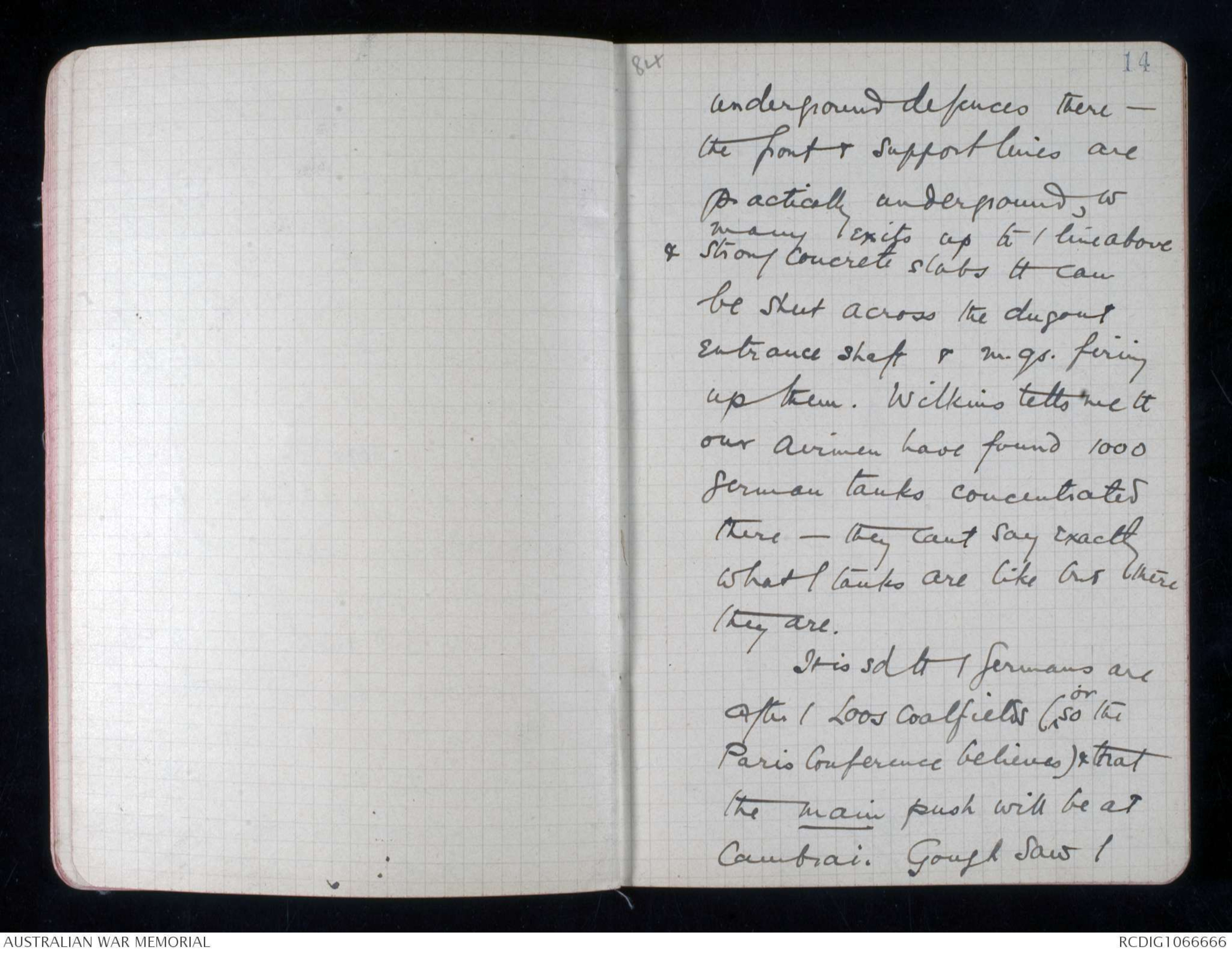
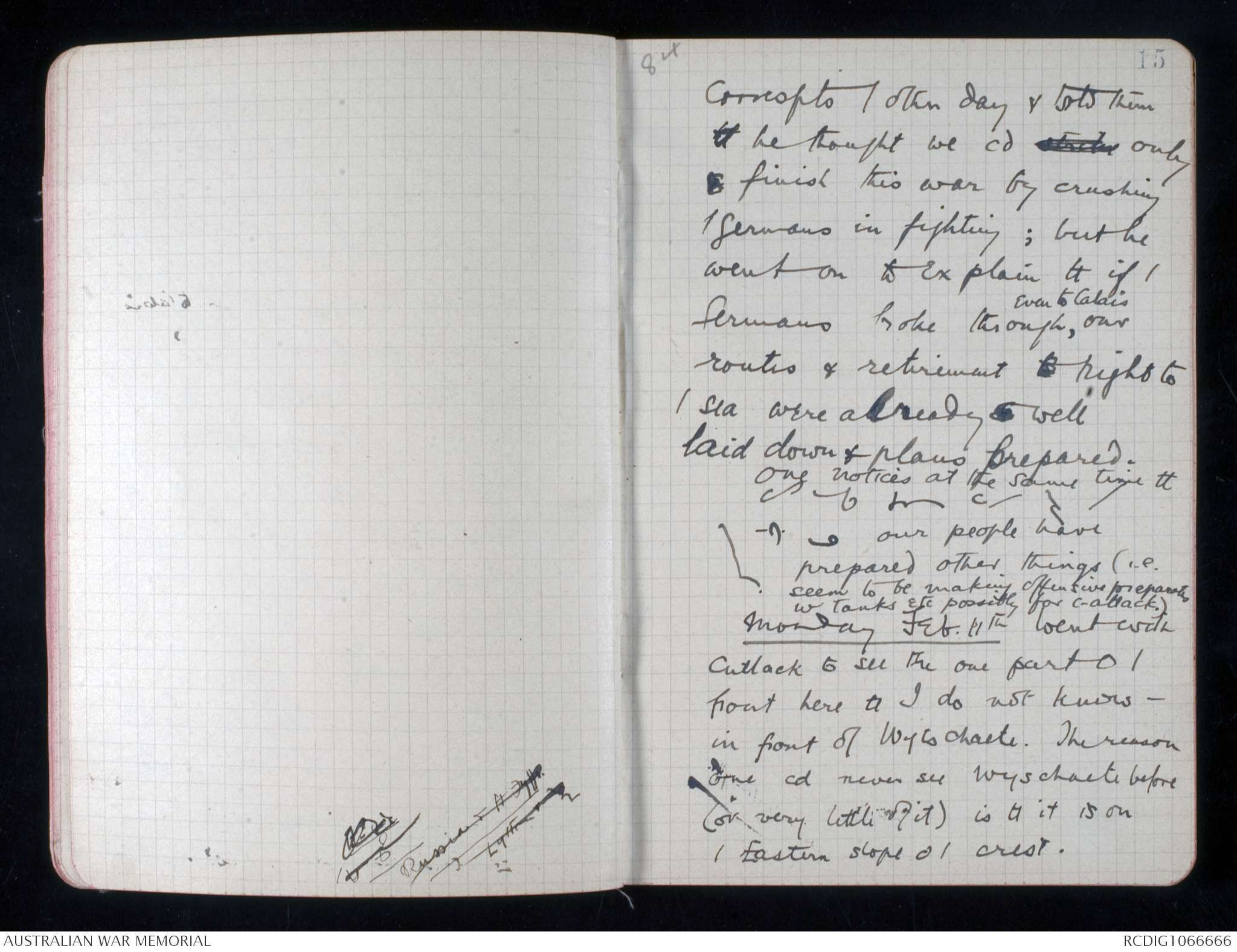
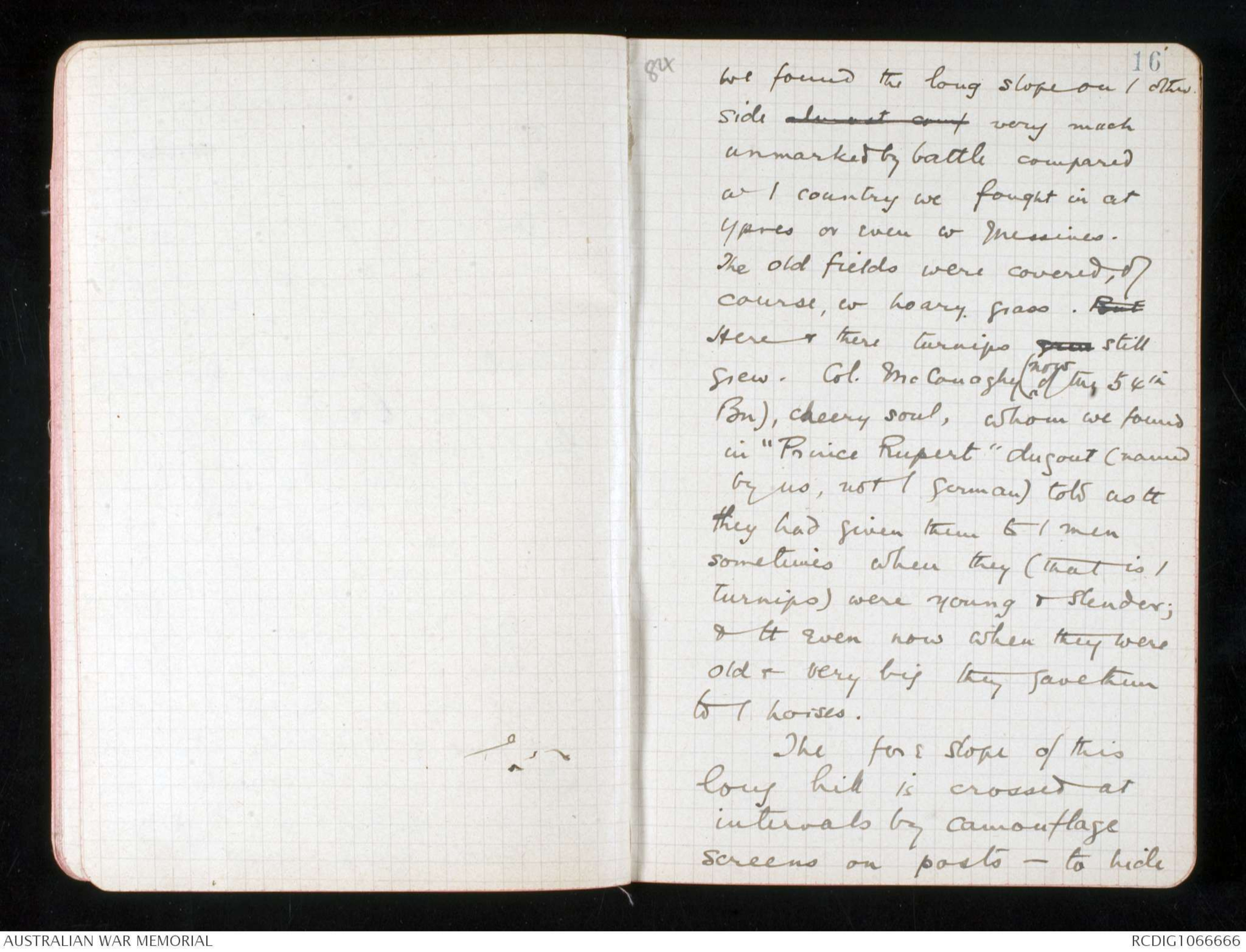
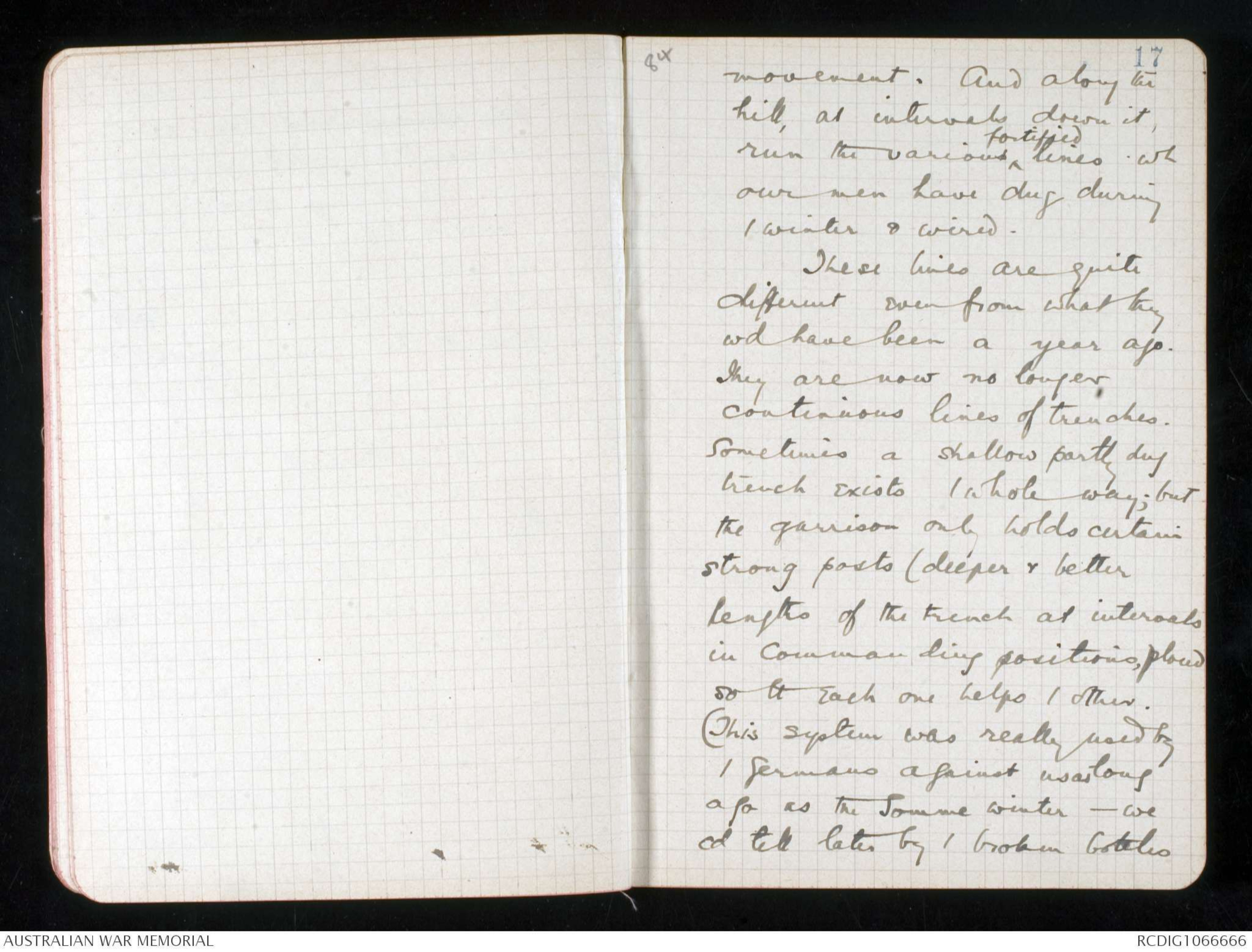
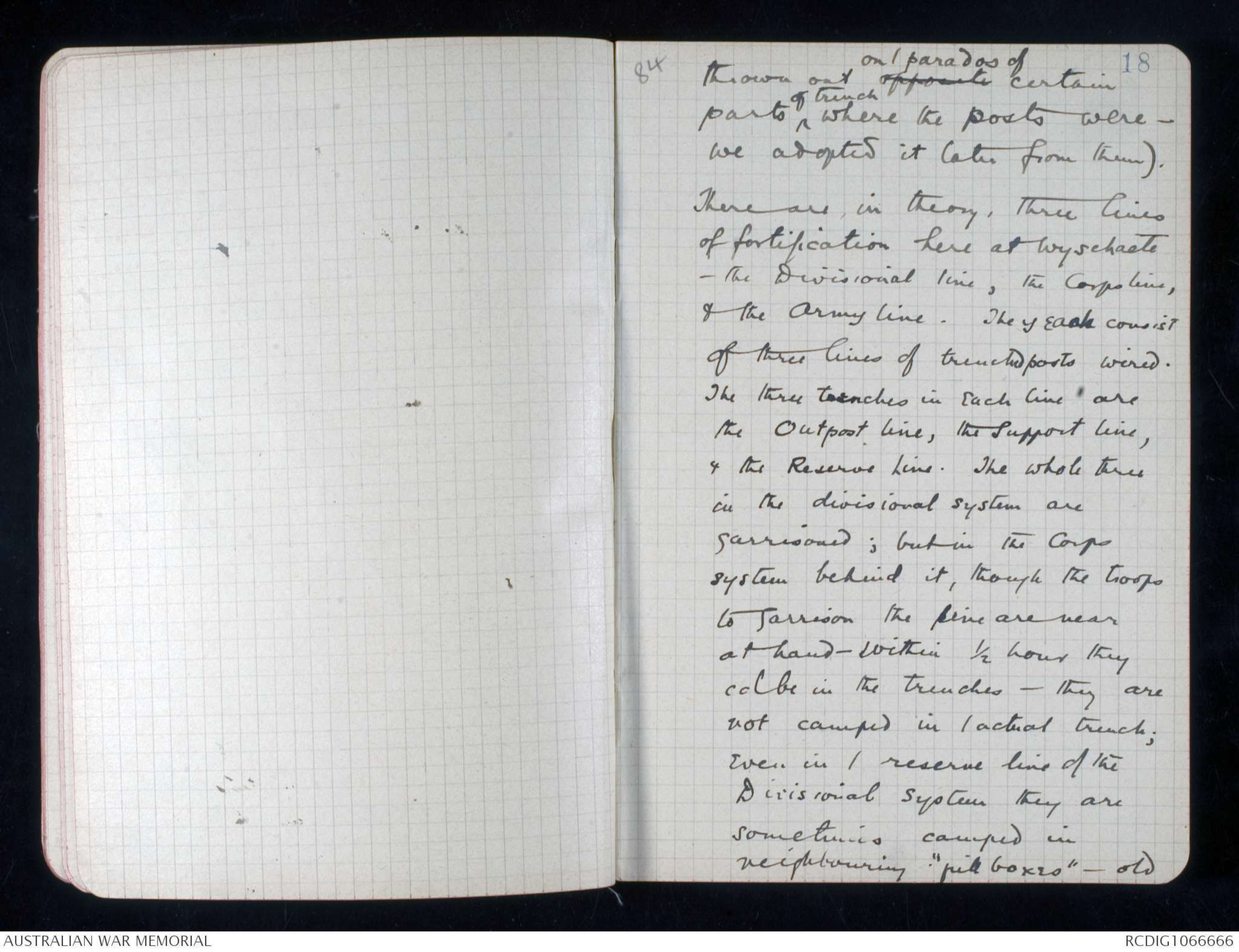
84 9
Sat Feb 9. Working on a
list of points for White, in
addition to a list from Treloar.
Saw White for over an hour this
afternoon. He exhibited just
/ same wonderful quick grasp
& quick flashes of judgement
that he always has done.
The scheme abt / artists in
a few seconds he turned upside
down - cut it right away in
favour of a bigger better & clear
simpler one.
White ended by saying
tt he often wondered whether /
best place for this force really
ws not in Palestine. There
are great reasons for it -health, short transport, fewer losses.
Then he made me think
furiously by saying tt he was
still not decided as to whether it
84 10
cd not & might not be
arranged - he thought it
might be worth taking up &
tackling / proposal seriously.
To have us half way to
Australia at / end o / war
wd be an enormous advantage.
For one thing - no men wd stay
in Palestine; & we want them
all back in Australia.
Gelly told me today tt /
idea now ws tt / English
brigades shd be reduced to
3 battalions; that / same
shd happen to Austln battlns
brigades; but tt whereas the
British wd keep their 4th Bns
& make other Bdes w them, we
shd (after any losses) do away
84 11
with ours & draft / men
to / remaining three (It wd
be a great loss of esprit
but possibly unavoidable) -
rather than break up any
division. The Canadians
will form the a second Corps,
partly out of their surplus battalionsxxxx It is a mistake on
our part if this hides from
Austlia the fact tt the forcedivision has really been
diminished. When any
dimination comes, Australia
shd know it, & take / full
responsibility frankly.
A post of the 45th Bn - 6
men - ws surrounded and
84 12
captd by / Germans without
firing a shot, Birdwood tells
me. The little mans voice
showed tt he was not
over-pleased with Gellibrand
in whose brigade the 45th is -
so it seemed to me. (Gelly
has been detached to a
m.g. school & knew nothing
of this post till we told him).
If so - it is another bit of
Gelly's bad luck for he is
improving tt Bde hand over
fist.
Sunday Feb.10. Went
down w Cutlack to Rollencourt.
Heard there from the Correspts
84 13
that the British are piling up
troops in the Cambrai area -
we saw guns on / way down -
Cutlack says 9 divisions have
gone down there - The major
commdg the army anti aircraft
batteries told White yesty tt
7 searchlights had bn sent there
also. No sign on our Austln
front of any attack - but
an attack is expected down by
Cambrai on March 1st.
The 3rd Austln Tunnelling Coy
abt Loos also told Cutlack &
Wilkins tt an attack with Tanks
is expected there. Our 3rd
Tunnellers have been putting in
a wonderful system of
84 14
underground defences there -
the front & support lines are
practically underground, w
many exits up to / line above
& strong concrete slabs tt can
be shut across the dugout
entrance shaft & m.gs. firing
up them. Wilkins tells me tt
our airmen have found 1000
German tanks concentrated
there - they cant say exactly
what / tanks are like but there
they are.
It is sd tt / Germans are
after / Loos coalfields (∧or so the
Paris Conference believes) & that
the main push will be at
Cambrai. Gough saw /
xxxxxxxxxRussia & H FyffeLytton & xx
84 15
Correspts / other day & told them
tt he thought we cd strike onlyxx finish this war by crushing
/ Germans in fighting; but he
went on to explain tt if /
Germans broke through even to Calais, our
routes & retirement to right to
/ sea were already xx well
laid down & plans prepared.
One notices at the same time tt
our people have
prepared other things (i.e.
seem to be making offensive preparatns
w tanks etc possibly for c-attack.)
Monday Feb. 11th Went with
Cutlack to see the one part o /
front here tt I do not know -
in front of Wytschaete. The reason
one cd never see Wytschaete before
(or very little of it ) is tt it is on
/ Eastern slope o / crest.
84 16
We found the long slope on / other
side almost compl very much
unmarked by battle compared
w / country we fought in at
Ypres or even w Messines.
The old fields were covered, of
course, w hoary grass. But
Here & there turnips grew still
grew. Col. McConaghy (∧now of the 54th
Bn), cheery soul, whom we found
in "Prince Rupert" dugout (named
by us, not / German) told us tt
they had given them to / men
sometimes when they (that is /
turnips) were young & slender;
& tt even now when they were
old & very big they gave them
to / horses.
The far E slope of this
long hill is crossed at
intervals by camouflage
screens on posts - to hide
84 17
movement. And along the
hill, at intervals down it,
run the various ∧fortified lines wh
our men have dug during
/ winter & wired.
These lines are quite
different even from what they
wd have been a year ago.
They are now no longer
continuous lines of trenches.
Sometimes a shallow partly dug
trench exists / whole way; but
the garrison only holds certain
strong posts (deeper & better
lengths of the trench at intervals
in commanding positions, placed
so tt each one helps / other.
(This system was really used by
/ Germans against us as long
ago as the Somme winter - we
cd tell later by / broken bottles
84 18
thrown out opposite on / parados of certain
parts ∧of trench where the posts were -
we adopted it later from them).
There are, in theory, three lines
of fortification here at Wyschaete
- the Divisional line, the Corps line,
& the Army line. They each consist
of three lines of trenched posts wired.
The three trenches in each line are
the Outpost line, the Support line,
& the Reserve Line. The whole three
in the divisional system are
garrisoned; but in the Corps
system behind it, though the troops
to garrison the line are near
at hand - within ½ hour they
cd be in the trenches - they are
not camped in / actual trench;
even in / reserve line of the
Divisional system they are
sometimes camped in
neighbouring "pill boxes" - old
 Lulu B
Lulu BThis transcription item is now locked to you for editing. To release the lock either Save your changes or Cancel.
This lock will be automatically released after 60 minutes of inactivity.